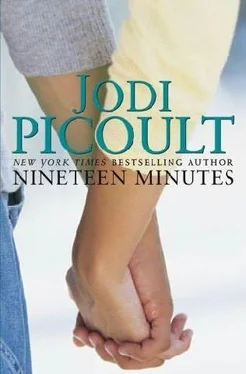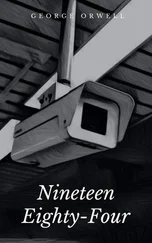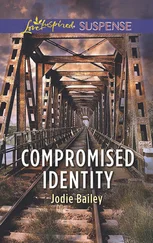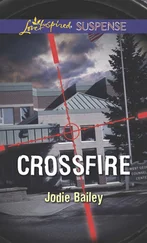“How many were hit?”
“We don’t have that information yet,” Diana repeated. “We’ll keep you posted.”
“When are charges going to be filed?” another journalist shouted.
“What can you tell the parents who want to know if their kids are okay?”
Diana pressed her mouth into a firm line and prepared to run the gauntlet. “Thank you very much,” she said, not an answer at all.
Lacy had to park six blocks away from the school; that’s how crowded it had become. She took off at a dead run, holding the blankets that the local radio announcers had urged people to bring for the shock victims. I’ve already lost one son, she thought. I can’t lose another.
The last conversation she had had with Peter had been an argument. It was before he went to bed the previous night, before she’d been called into a delivery. I asked you to take out the trash, she had said. Yesterday. Don’t you hear me when I talk to you, Peter?
Peter had glanced up at her over his computer screen. What?
What if that turned out to be the final exchange between them?
Nothing Lacy had seen in nursing school or in her work at a hospital prepared her for the sight she faced when she turned the corner. She processed it in pieces: shattered glass, fire engines, smoke. Blood, sobbing, sirens. She dropped the blankets near an ambulance and swam into a sea of confusion, bobbing along with the other parents in the hope that she might catch her lost child drifting before being overwhelmed by the tide.
There were children running across the muddy courtyard. None of them had coats on. Lacy watched one lucky mother find her daughter, and she scanned the crowd wildly, looking for Peter, aware that she didn’t even know what he was wearing today.
Snippets of sound floated toward her:
…didn’t see him
……Mr. McCabe got shot…
…haven’t found her yet…
…I thought I’d never…
…lost my cell phone when…
…Peter Houghton was…
Lacy spun around, her eyes focusing on the girl who was speaking-the one who’d been reunited with her mother. “Excuse me,” Lacy said. “My son…I’m trying to find him. I heard you mention his name-Peter Houghton?”
The girl’s eyes rounded, and she sidled closer to her mother. “He’s the one who’s shooting.”
Everything around Lacy slowed-the pulse of the ambulances, the pace of the running students, the round sounds that fell from the lips of this girl. Maybe she had misheard.
She glanced up at the girl again, and immediately wished she hadn’t. The girl was sobbing. Over her shoulder her mother stared at Lacy with horror, and then carefully pivoted to shield her daughter from view, as if Lacy were a basilisk-as if her very stare could turn you to stone.
There must be some mistake, please let there be a mistake, she thought, even as she looked around at the carnage and felt Peter’s name swell like a sob in her throat.
Woodenly, she approached the closest policeman. “I’m looking for my son,” Lacy said.
“Lady, you’re not the only one. We’re doing our best to-”
Lacy took a deep breath, aware that from this moment on, everything would be different. “His name,” she said, “is Peter Houghton.”
Alex’s high heel twisted in a crack in the sidewalk, and she went down hard on one knee. Struggling upright again, she grabbed at the arm of a mother who was running past her. “The names of the wounded…where are they?”
“Posted at the hockey rink.”
Alex hurried across the street, which had been blocked off to cars and was now a triage area for the medical personnel loading students into ambulances. When her shoes slowed her down-they were designed for an indoor courthouse, not running around outside-she reached down and stepped out of them, running in her stockings down the wet pavement.
The hockey rink, which was shared by both the Sterling High School team and the college players, was a five-minute walk from the school. Alex reached it in two minutes and found herself being pushed forward by a throng of parents all determined to see the handwritten lists that had been taped to the door panels, lists of the children who’d been taken to area hospitals. There was no indication of how badly they’d been hurt…or worse. Alex read the first three names: Whitaker Obermeyer. Kaitlyn Harvey. Matthew Royston.
Matt?
“No,” a woman beside her said. She was petite, with the dark darting eyes of a bird and a froth of red hair. “No,” she repeated, but this time, the tears had already begun.
Alex stared at her, unable to offer comfort, out of fear that grief might be contagious. She was suddenly shoved hard from the left and found herself now standing in front of the list of wounded who’d been taken to Dartmouth-Hitchcock Medical Center.
Alexis, Emma.
Horuka, Min.
Pryce, Brady.
Cormier, Josephine.
Alex would have fallen if not for the press of anxious parents on either side of her. “Excuse me,” she murmured, giving up her place to another frantic mother. She struggled through the growing crowd. “Excuse me,” Alex said again, words that were no longer polite discourse, but a plea for absolution.
“Captain,” a desk sergeant said as Patrick walked into the station, and he slid his eyes toward the woman who was waiting across the room, coiled tight with purpose. “That’s her.”
Patrick turned. Peter Houghton’s mother was tiny and looked nothing like her son. She had a pile of dark curls twisted on top of her head and secured with a pen. She wore scrubs and a pair of Merrell clogs. He wondered, briefly, if she was a doctor. He thought about the irony of that: First, do no harm.
She didn’t look like a person who’d created a monster, although Patrick realized she might have been caught just as unaware by her son’s actions as the rest of the community. “Mrs. Houghton?”
“I want to see my son.”
“Unfortunately, you can’t,” Patrick replied. “He’s being held in custody.”
“He has a lawyer.”
“Your son is seventeen-legally, an adult. That means that Peter’s going to have to invoke his right to an attorney himself.”
“But he might not know…” she said, her voice breaking. “He might not know that’s what he needs to do.”
Patrick knew that, in a different way, this woman was a victim of her son’s actions, too. He had interrogated enough parents of minors to know that the last thing you ever wanted to do was burn a bridge. “Ma’am, we’re doing our best to understand what happened today. And honestly, I hope you’ll be willing to talk to me later-to help me figure out what Peter was thinking.” He hesitated, and then added, “I’m very sorry.”
He let himself into the inner sanctum of the police station with his keys and jogged up the stairs to the booking room with its adjacent lockup. Peter Houghton sat on the floor with his back to the bars, rocking slowly.
“Peter,” Patrick said. “You all right?”
Slowly, the boy turned his head. He stared at Patrick.
“You remember me?”
Peter nodded.
“How’d you like a cup of coffee or something?”
A hesitation, and then Peter nodded again.
Patrick summoned the sergeant to open Peter’s cell and led him to the kitchen. He’d already arranged to have a camcorder running, so that if it came down to it, he could get Peter’s verbal consent to his rights on tape and then get him to talk. Inside, he invited Peter to take a seat at the scarred table, and he poured two cups of coffee. He didn’t ask Peter how he liked it-just added sugar and milk and set it in front of the boy.
Patrick sat down, too. He hadn’t gotten a good look at the boy before-adrenaline will do that to your vision-but now he stared. Peter Houghton was slight, pale, with wire-rimmed glasses and freckles. One of his front teeth was crooked, and his Adam’s apple looked fist-sized. His knuckles were knotty and chapped. He was crying quietly, and it might have been enough to engender sympathy had he not been wearing a T-shirt splattered with the blood of other students.
Читать дальше












